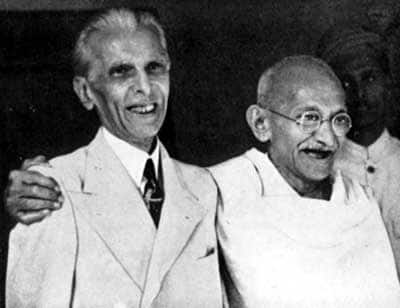



Pakistan Army chief general Asim Munir stirred up a controversy when he mentioned the two-nation theory while addressing the Overseas Pakistani Convention in Islamabad on Wednesday. debate on social media on whether the theory was successful, here's the history behind Pakistan's connection with it.
"Two-nation theory" was brought up by Muhammad Ali Jinnah in 1940. The founder of Pakistan had given a seminal speech that year, before the partition of India when Hindus and Muslims had lived together across the country, setting out the need for a separate state for Muslims on the subcontinent. Although Jinnah was not the first to articulate the two-nation theory, with the creation of Pakistan, he managed to transform it into a political reality.
"It is a dream that the Hindus and Muslims can ever evolve a common nationality," the BBC quoted Jinnah as saying. "Hindus and Muslims belong to two different religious philosophies, social customs, and literary traditions. They neither intermarry nor eat together, and indeed they belong to two different civilisations which are based mainly on conflicting ideas and conceptions."
 Mahatma Gandhi and Muhammad Ali Jinnah in Bombay, September 1944 Photo via Wikimedia Commons
Mahatma Gandhi and Muhammad Ali Jinnah in Bombay, September 1944 Photo via Wikimedia CommonsThis "two-nation theory", as it came to be known, became the official Pakistani narrative for the creation of the state and key to how the country defines itself.
'Nothing in common'Before the Partition, the Muslims living in British India were concerned at the prospect of becoming a minority in a Hindu-dominated independent India since about a quarter of the population was Muslim.
The two-nation theory is now taught to all school children in Pakistan, the BBC reported, adding that it is why "many see independence as liberation from India, as opposed to independence from British colonial rule". When a BBC reporter asked teenagers in Islamabad why Pakistan was created, one reportedly said, "Hindus and Muslims had nothing in common other than the fact that they shared a land. Their religion, their values, and their culture were all different. So that was why a new country was needed to get their rights."
It's the same sentiment that Pakistan's Army chief echoed on Wednesday.
"…Our forefathers thought we were different from Hindus in every possible aspect of life," he said. “Our religion is different, our customs are different, our traditions are different, our thoughts are different, our ambitions are different. That’s where the foundation of the two-nation theory was laid. We are two nations, we are not one nation.”
Urging Pakistani citizens to remember and pass on stories of the partition of India and the creation of Pakistan, Munir said, “My dear brothers and sisters and sons and daughters, please don’t forget the story of Pakistan and don’t forget to narrate the story of Pakistan to your next generation, so that their bond with Pakistan never weakens. Whether it is the third generation, or the fourth generation, or the fifth generation, they know what Pakistan is for them."
Discover the latest Business News, Sensex, and Nifty updates. Obtain Personal Finance insights, tax queries, and expert opinions on Moneycontrol or download the Moneycontrol App to stay updated!
Find the best of Al News in one place, specially curated for you every weekend.
Stay on top of the latest tech trends and biggest startup news.